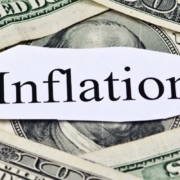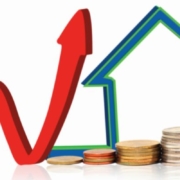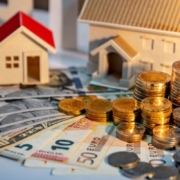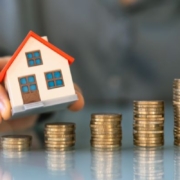Kathy’s 2019 Housing Forecast
By Kathy Fettke, Co-CEO of the Real Wealth Network
Welcome to my 2019 Housing Forecast! I’ve been doing these predictions for many years starting well before the housing crisis, when loans were easy and home prices only went “up.”
I was a mortgage broker back then, and knew something was very wrong in the lending world. I couldn’t understand how it made sense that I was able to give a loan to just about anyone… and I got my answer in2008 when the housing market crashed.
Since then, it’s become my passion to understand the politics behind economics, so that I’m never caught off guard again. Please note:these thoughts are my opinions only. and not to be construed as financial advice.
My theory on the housing market boils down to these three factors:
Real estate values are tied to jobs.
Jobs are tied to the economy.
The economy is tied to Federal Reserve policy and government regulations.
That’s a very simplified version of the housing market machine, but decisions by the Federal Reserve and the government can have a torpedo-like impact on real estate. So if you take a close look at what’s happening with the central bank and government policy, you might get a clue as to what is coming.
The Federal Reserve

The Federal Reserve attempts to regulate the economy by controlling the money supply. When there’s more money flowing, prices tend to increase. When there’s less liquidity, less money circulating, prices tend to decline. One of the ways the Fed controls the circulation of money is by raising or lowering the overnight lending rates –basically what it costs banks to borrow money and lend it out.
The Fed lowered these short-term interest rates to near zero levels after the Great Recession, in an attempt to jumpstart a flat-lined economy. It also bought bonds to keep interest rates low, and launched quantitative easing programs that essentially created money “out of thin air” for circulation.
It worked! With trillions of new, freshly minted dollars circulating, the economy came back to life, and a decade later, is booming.
But, a boom can also lead to a bubble, and bubbles burst. So the Fed regulates booms by lowering interest rates. One sign of an overheated economy is runaway inflation, so the Federal Reserve set 2% inflation as a benchmark for raising rates. Inflation hit that 2% mark in 2015, so the Fed began to reverse it’s easy money policies by raising rates. Since then, the Fed has raised rates nine times, including four rate hikes in 2018 alone.
This attempt to slow things down also worked!
It’s not surprising. Higher rates make everything more expensive, which can curb borrowing and spending. This effectively pulls the throttle on the economy and slows down inflation.

Plus, there may be another reason why the Fed has been steadily raising rates. The economy has been booming for a decade now, and many economists believe it’s now near its peak. Some are predicting a recession by 2020. One of the Federal Reserve’s arsenals for turning around a recession is to lower interest rates. But if rates are already low, the Fed has nowhere to go. It has to go up first so it can go down again in the future. Therefore, some say the Fed has been raising rates so that they can lower rates again next year.
Mortgage Rates
Higher short-term interest rates makes it more expensive to buy cars,take out equity loans, and use credit cards. They also make variable-rate mortgages higher, but they do not have a direct influence on long-term mortgage rates. In fact, in December when the Fed raised rates for the 4th time, long-term mortgage rates actually went down. Why?

Long-term rates follow the bond market more closely than the Fed Fund rate. When investors are confident, they invest in the stock market. When they are fearful, they seek the safety of bonds — specifically the 10-year Treasury note. Those same investors tend to flock to the safety of mortgage-backed securities. When more investors are buying, prices decline. So when there’s more fear in the market, long-term interest rates tend to soften.
The Fed’s December rate hike rattled the stock market, sending anxious investors to the safety of bonds. As a result, stocks took a sharp nose dive in December. More purchasers of bonds and mortgage-backed securities effectively lowered long-term mortgage rates. This could help boosts home sales in the Spring.
The Federal Government
When it comes to the federal government, we’ve seen major policy changes that are influencing the housing market. Several are contained in the massive tax reform package that cut taxes and changed the rules for deductions. By lowering the corporate tax rate to 21%, businesses have more money to reinvest and expand their workforce, which puts more people back to work.
One of the biggest benefits for real estate investors is the new pass-through rule that allows people with LLCs and similar business operations to take a 20% deduction. So there are big benefits for all those Mom and Pop landlords who operate as LLCs. The new rules also preserve the highly-prized 1031 exchange, which was at risk of being eliminated. The new Opportunity Zone tax break program is also part of that tax package.

Homeowners didn’t make out as well. They lost deductions for things like vacation homes and large mortgage payments, making homeownership, for some people, more expensive.
Low Unemployment
As I mentioned, those tax cuts were designed to lower the unemployment rate, which is now so low that it’s actually unhealthy for the economy. The data shows that we have more open positions than people looking for jobs. When there’s a shortage of workers, employers have to pay more. That extra expense is then passed on to consumers in the form of higher prices which contribute to inflation. If we start seeing higher prices, the Fed will be inclined to raise those short-term interest rates, which can also trigger other repercussions, like that stock market volatility.
What we need is workforce growth right now — not job growth. And this is a critical element for today’s economy because our workforce is actually shrinking. The U.S. birthrate has dropped to a 30-year low and continues to fall. Baby Boomers will be retiring in massive numbers, leaving more open positions in their wake. And there’s the debate over immigration, and the value of immigrants for jobs like farming and construction.
Economic and Housing Repercussions

So here are some of my predictions for 2019:
The GDP will slow down to around 2% from 3%, as the effects of those tax cuts wear off. High housing prices and interest rates could also help slow growth, along with trade tensions, domestic politics, and the current pullback by China. But, I don’t think we’ll see a recession, this year.
Unemployment will rise slightly due to a changing workforce that includes less corporate dollars for new jobs. An unemployment rate of4 to 6% is considered healthy, so a slightly higher jobless rate could be good for our economy.
Mortgage rates will remain relatively low. The Fed is expected to hold off on rate hikes during the first half of the year as it reassesses the economy. If we see another rate hike or two, it probably won’t take place until later this year.
Consumer debt will increase because it’s now more expensive to borrow money.
Demand for rentals will remain strong because homeownership has gotten more expensive.
Return to Normal Gains
We’ve been so spoiled over the last 10 years by double-digit gains. Investors need to start expecting more normal returns. Syndications will go back to 6% preferred returns, with an equity kicker on the back end that would bring the IRR to just over 10%. Unless you find that home run — like our development in Costa Rica, where we got the land cheap and received entitlements quickly such that we were able to get our glamping resort up and running, effectively lowering holding costs. We are expecting investors to receive an 18% return on that one. But these types of deals will be fewer and further between.

If you’re expecting another 2008 housing meltdown where you can pick up properties for pennies on the dollar, you may be waiting a long time.
There is No “One” Housing Market
We also have to remember that the national housing market isn’t just “one” housing market. Instead, it’s made up of thousands of diverse housing markets. The key to higher returns is finding emerging markets — those with job and population growth, but with real estate values still below their peak. These types of areas give investors both cash flow today and a strong chance of appreciation in the future — a win/win, whether a recession is coming or not.
What happens when we do get hit by another housing recession?
We have to remember, today’s housing scenario is very different than in 2008. Back then, loan underwriting was loose. Today, it’s still very tight. This time, most homeowners have equity in their home. Back then, they did not. Today, homeowners are locked into historically low interest rates. It would be much more expensive to sell or to rent, so they will hold onto their homes. Plus, Airbnb wasn’t prominent in 2008. Today, people can rent out rooms in order to make house payments. That brings me to my 7th and final prediction:
The housing market will remain on solid ground although price growth will be slower.
The recent slide in mortgage rates is corresponding to more activity from home buyers. That’s an indication that by keeping interest rates about where they are now, the housing market will thrive. We may see some turmoil at the high end of the housing market due to things like the tax law and stock market gyrations, but the housing market as a whole will likely see growth in more affordable markets.
The trick is to find the right markets. Real estate investors want to be in growth markets. And there are several good markets where that makes sense. The Real Wealth Network has identified 15 markets that can provide a good return on your investment. Some are better for appreciation. Others are better for cash flow. We have more information about those markets at our website www.realwealthnetwork.com

Kathy Fettke
Kathy Fettke is Co-CEO of Real Wealth Network and best selling author of Retire Rich with Rentals. She is an active real estate investor, licensed real estate agent, and former mortgage broker, specializing in helping people build multi-million dollar real estate portfolios that generate passive monthly cash flow for life.
With a passion for researching real estate market cycles, Kathy is a frequent guest expert on CNN, CNBC, Fox, Bloomberg, NPR, CBS MarketWatch and the Wall Street Journal. She was also named among the “Top 100 Most Intriguing Entrepreneurs” by Goldman Sachs two years in a row.
Kathy hosts two podcasts, The Real Wealth Show and Real Estate News for Investors — both top ten podcasts on iTunes with listeners in 27 different countries. Her company, Real Wealth Network, offers free resources and cutting edge education for beginning and experienced real estate investors. Kathy is passionate about teaching others how to create “real wealth,” which she defines as having both the time and the money to live life on your terms.












